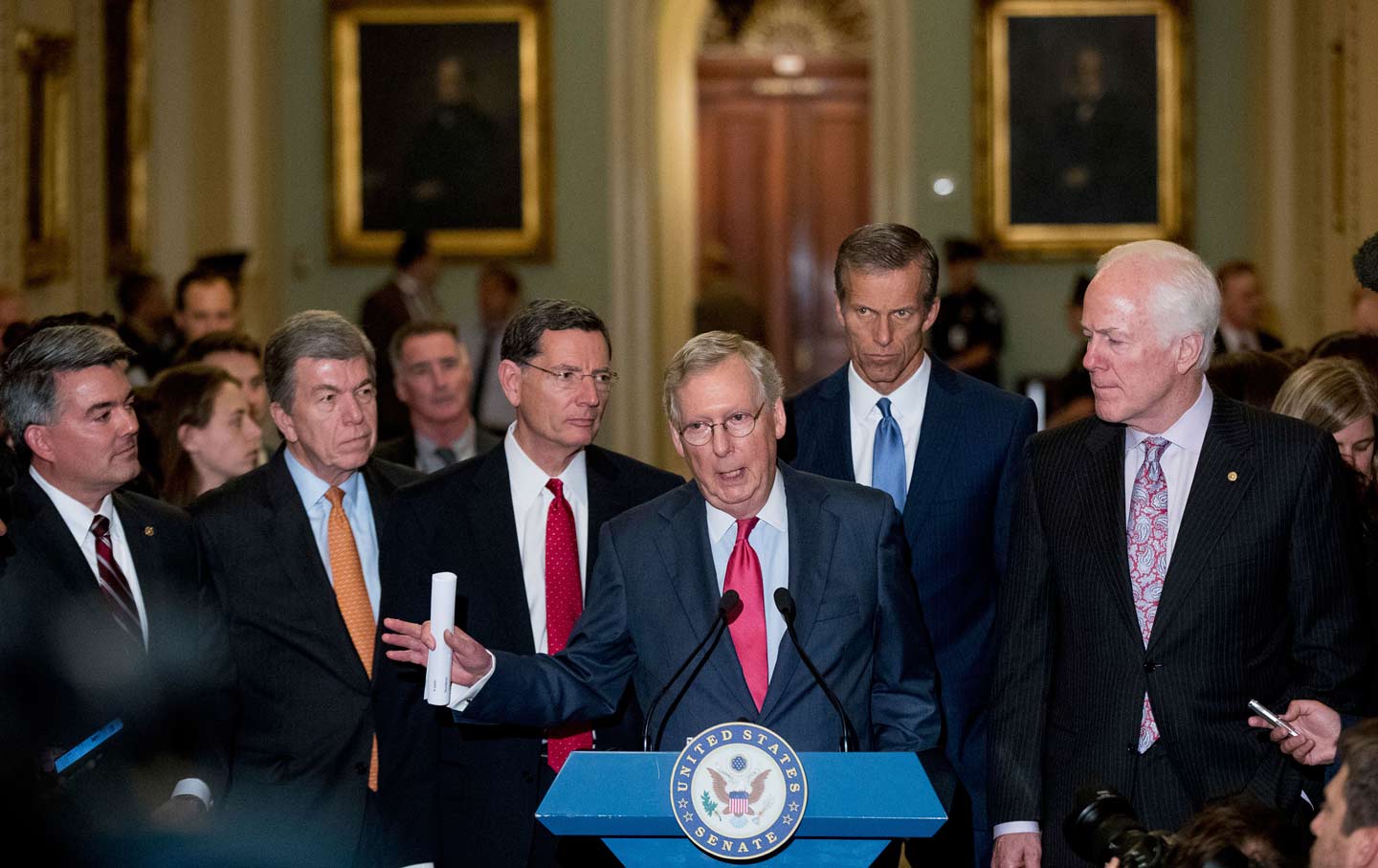The omnibus package is on the path to passage, but the expected exclusion of marijuana banking reform has spawned a battle in the Senate GOP.
For months, top Democrats and a number of Republicans had high hopes that legislation allowing banks to offer services to cannabis businesses in states where it has been legalize would be part of either the year-end National Defense Authorization Act or the omnibus package.
Those dreams were dashed last week when Senate Minority Leader Mitch McConnell (R-Ky.) took a two-by-four to the plan, likely leaving the Secure and Fair Enforcement (SAFE) Banking Act on the cutting room floor this year.
That has put Sen. Steve Daines (R-Mont.) in a tricky position.
Daines, the newly minted chairman of the National Republican Senatorial Committee (NRSC), is the lead Republican on the SAFE Banking bill.
Montana is among the 19 states (plus the District of Columbia) that have legalized marijuana for recreational use.
On top of that for Daines, the push to legalize marijuana is broadly popular. According to a Pew Research survey taken last month, 88 percent of U.S. adults say it should be legalized for both medical and recreational use. Only 10 percent oppose the push.
Nevertheless, the effort is expected to be punted until 2023 at least.
Proponents of the legislation are upset, as they maintain the bill has enough support to clear procedural hurdles and win at least 60 votes on the Senate floor.
“It’s got to be addressed. Guys like me have been trying to make the case to my conference that this is not some kind of crazy bill. It’s a bill about safety and small businesses,” said Sen. Dan Sullivan (R-Alaska), who, along with Daines and Sen. Rand Paul (R-Ky.), have led the GOP’s SAFE Banking effort.
The SAFE Banking bill was set to be paired with the Harnessing Opportunities by Pursuing Expungement Act, which would create grants for state expungement programs. The latter proposal was authored by Reps. David Joyce (R-Ohio) and Alexandria Ocasio-Cortez (D-N.Y.).
Differences over the legislation have not done damage to the Daines-McConnell relationship.
Multiple Senate GOP sources say the two have a “great” dynamic and that there isn’t any friction between them, especially as Daines takes over the NRSC from Sen. Rick Scott (R-Fla.), a vocal opponent of the longtime Republican leader.
“Just different dynamics [back home],” said Sen. Thom Tillis (R-N.C.), referring to the different tracks for Montana and Kentucky.
Daines declined to comment directly when asked about the political impact of legislative action on marijuana or his conversations with McConnell in recent weeks. He pressed that the impetus behind advancing the legislation is predominantly for safety purposes in his home state.
“My support for SAFE Banking relates to the first word in the bill. It’s called ‘safe.’ This is a public safety issue,” Daines said in an interview, noting that 38 attorneys general back the effort. “For states that have legalized cannabis, this is a way you can make a community safe — by taking the cash off the street and put it in the bank.”
Opponents of the bill echo McConnell’s remarks on the Senate floor last week where he argued the legislation would be “making our financial system more sympathetic to illegal drugs.”
“It seems odd that we would create a legal construct for something that’s federally prohibited. If you want me to be sympathetic to states that have legalized it, contrary to federal law, that have a banking problem, let’s look at the broader issues that would have to be part of federal policy,” Tillis said, noting that would involve the Food and Drug Administration, along with regulatory, tax and revenue-related avenues.
The battle over the legislation has pit allies against one another while putting political foes on the same side.
One of the senators Daines will potentially be tasked with defeating in 2024 is Sen. Jon Tester (D-Mont.), a prime GOP target. Tester himself has a related bill that would push the Department of Veterans Affairs to conduct clinical trials for medical marijuana to be used as an alternative remedy for chronic pain and post-traumatic stress disorder. What’s the difference between freezing rain, sleet and snow? Mom warns of dangers after baby swallows popular product
Daines and Senate Majority Leader Charles Schumer (D-N.Y.) were convinced the bill would get over the finish line this year, especially as marijuana boosters felt the wind at their back. President Biden in October issued pardons for all federal offenses of simple marijuana possession, a move viewed as a precursor to full decriminalization of the drug’s usage.
Supporters of the blueprint believe lawmakers are missing a major opportunity.
“Here’s what you don’t want to do: You don’t want to have some kind of horrendous crime against someone with all this cash, and then people say, ‘Oh, now we have to act.’ We’re supposed to act to prevent that,” Sullivan said.
